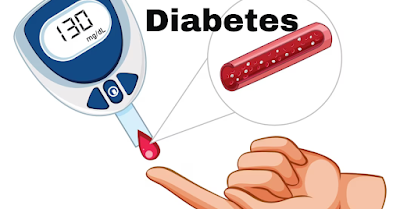7 Effective home remedies for Diabetes
Section 1 : understanding diabetes ,types and Causes
Diabetes is a complex medical condition that can be told by a combination of inheritable, environmental, and life factors. There are two main types of diabetes type 1 and type 2, each with distinct causes.
Type 1 Diabetes
Type 2 Diabetes
1. Genetic Predisposition
2. Obesity and Sedentary life
3. Insulin Resistance
4. Other Factors
Section 2: Common Symptoms of Diabetes
Diabetes is often referred to as the" silent epidemic" because its symptoms can be subtle, making it easy to overlook in the very early stages and. still, understanding the common symptoms is crucial as early discovery and management can help help complications down the line.
1. Increased Thirst (Polydipsia)
One of the hallmark symptoms of diabetes is an unappeasable thirst. People with diabetes may feel excessively thirsty due to the elevated levels of sugar in their bloodstream. The body tries to flush out the excess sugar by adding urine product, leading to dehumidification and increased thirst.
2. Frequent Urination (Polyuria)
Excess sugar in the blood can overwhelm the kidneys' ability to reabsorb it, leading to increased urine product. This results in frequent passages to the restroom, both during the day and at night.
3. Unexplained Weight Loss
People with diabetes, especially type 1, might witness rapid-fire weight loss despite maintaining their regular eating habits. This weight loss occurs because the body starts breaking down muscle and fat for energy when it can not use glucose duly.
4. Fatigue and Weakness
High blood sugar situations can help the cells from getting the energy they need. This can lead to patient fatigue, weakness, and a general feeling of being run down.
5. Blurred Vision
Elevated blood sugar levels can affect the lens of the eye, causing temporary changes in vision. Blurred vision is a common symptom that can come and go as blood sugar levels change.
6. Slow Healing of Injuries
Diabetes can affect the body's capability to heal efficiently. Indeed minor cuts and injuries might take longer to heal, adding the threat of infection.
7. Tingling and Numbness ( Neuropathy )
Over time, high blood sugar situations can damage the nerves, leading to sensations of chinking, impassiveness, or burning, generally starting in the extremities like the feet and hands.
8. Frequent Infections
High blood sugar situations can weaken the immune system, making individualities more susceptible to infections, particularly incentive infections( similar as thrush) and urinary tract infections.
9. Increased Hunger( Polyphagia)
Section 3 :Complications of Diabetes
Untreated or poorly managed diabetes can lead to severe complications, including cardiovascular complaint, nerve damage( neuropathy), kidney damage( nephropathy), and eye problems( retinopathy). It's pivotal to manage diabetes to help these complications
Section 4 : Effective Home Remedies
Healthy Diet
Healthy Diet - Focus on a balanced diet rich in whole grains, spare proteins, vegetables, and fruits. Avoid sugary and reused foods that can cause blood sugar spikes.
Regular Exercise
Herbal Remedies
Apple Cider Vinegar
Fiber - Rich Foods
Hydration
 |
Stress Management
Section 5 :When to Seek Medical Care:
frequently Asked questions
Q.Can cinnamon help regulate blood sugar levels?
Ans. Some studies suggest that cinnamon may help improve insulin sensitivity and lower blood sugar levels, but it's important to consult a healthcare professional before adding it to your routine.
Q.Is it true that apple cider vinegar can help with diabetes?
Ans. Some research indicates that apple cider vinegar may improve insulin sensitivity and lower blood sugar levels.
Q. Are there any herbs that can help with diabetes?
Ans. Herbs like fenugreek, ginseng, and bitter melon have shown potential in helping regulate blood sugar levels, but their effectiveness can vary and they should be used with caution.
Q. Can I incorporate exercise as a natural way to manage diabetes?
Ans. Yes, regular physical activity can improve insulin sensitivity and help control blood sugar levels.
Q.How does fiber benefit people with diabetes?
Ans. Fiber-rich foods like fruits, vegetables, and whole grains can help stabilize blood sugar levels by slowing down the absorption of glucose in the bloodstream.Q. Are there specific foods that should be avoided for managing diabetes?
Ans. It's important to limit foods high in added sugars, refined carbohydrates, and saturated fats. It's also important to monitor portion sizes.
Q.Can stress management techniques help with diabetes control?
Ans. Yes, stress can affect blood sugar levels. Practices like deep breathing, meditation, and regular relaxation can help manage stress and improve diabetes control.Q. Is it true that certain types of tea can be beneficial for diabetes?
Ans.Green tea, due to its high antioxidant content, may have some positive effects on insulin sensitivity and blood sugar control.
Q. How can I use portion control to manage my blood sugar levels?
Ans. Paying attention to portion sizes helps regulate carbohydrate intake, which is crucial for managing blood sugar levels.
Q.Can I use natural sweeteners as a substitute for sugar?
Ans.Natural sweeteners like stevia, monk fruit, and erythritol can be good alternatives for people with diabetes. However, moderation is key, and it's best to consult a healthcare provider.
Conclusion
Understanding the causes and symptoms of diabetes empowers individualities to take visionary way in managing their health. Incorporating effective home remedies, in confluence with medical guidance, can contribute to better blood sugar control and an advanced quality of life for those living with diabetes.







Post a Comment